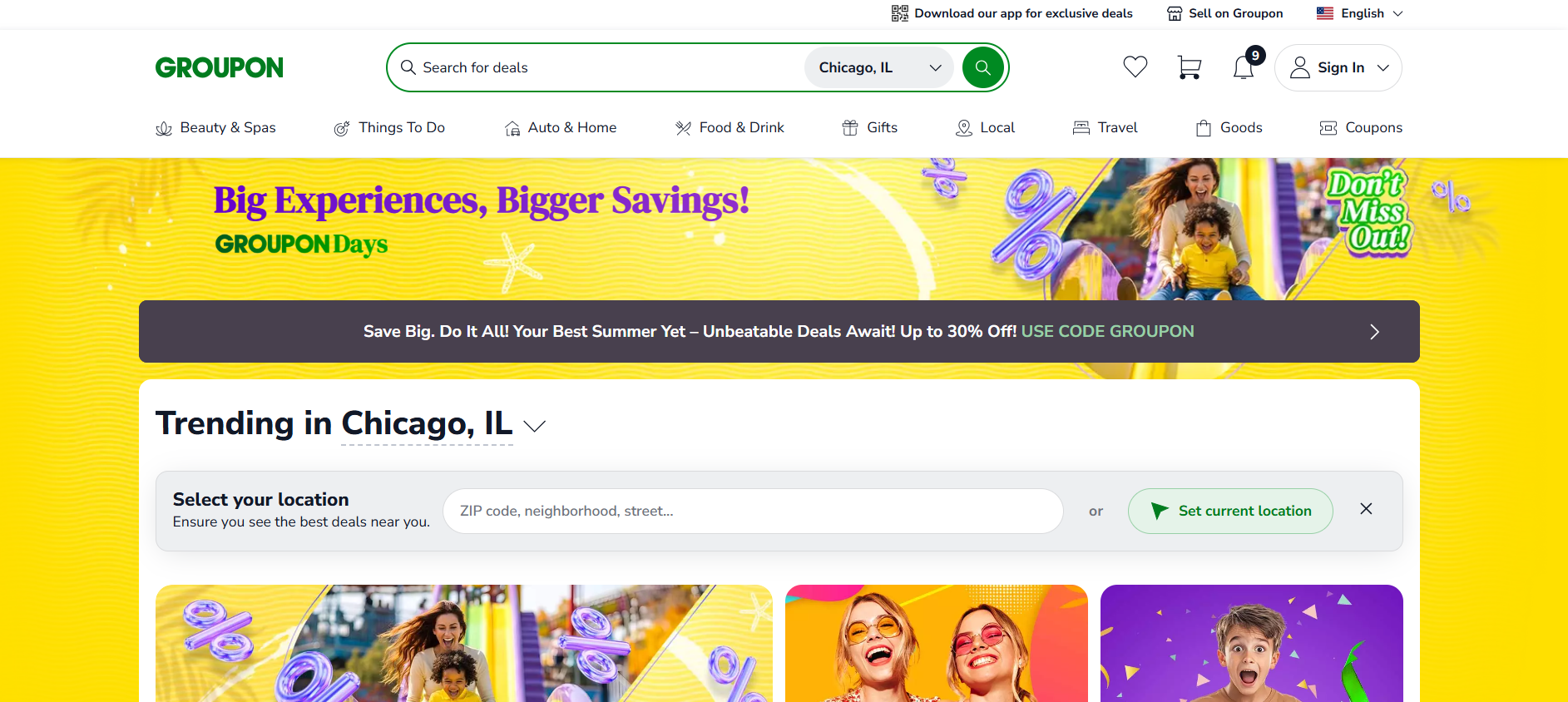Founded in November 2008 by Andrew Mason in Chicago,
Groupon pioneered the "group buying" concept that merged social commerce with local business promotion. The platform's name derives from "group coupon," encapsulating its core proposition: offering substantial discounts (typically 50-90% off) when a minimum number of customers commit to purchase.
Groupon official Website: https://www.groupon.com
The operational model creates a win-win scenario:
For consumers: Access to deeply discounted experiences
For merchants: Customer acquisition tool with guaranteed revenue
For Groupon: Commission on each transaction (averaging 30-50%)
Historical Milestones
2008-2010: Exponential Growth Phase
Launched as "The Point" before pivoting to daily deals
Rejected $6 billion acquisition offer from Google in 2010
Achieved $1 billion in revenue faster than any company in history
2011-2015: Global Expansion & Challenges
IPO in November 2011 (NASDAQ: GRPN) at $20/share
Operated in 48 countries at peak expansion
Faced criticism about merchant satisfaction and deal fatigue
2016-Present: Business Model Evolution
Shifted from daily deals to ongoing marketplace
Introduced Groupon+ (cashback program)
Expanded into travel, goods, and subscription services
Current Business Segments (2025)
Local Deals Marketplace (60% revenue)
Dining, beauty, fitness, and entertainment offers
AI-driven personalized recommendations
Groupon Goods (25% revenue)
Discounted physical products with direct shipping
Groupon Travel (10% revenue)
Hotel and experience packages
Groupon+ Membership (5% revenue)
Subscription-based cashback program
Technological Innovations
Mobile-First Strategy: 75% of transactions occur via app
Dynamic Pricing Algorithms: Real-time adjustment of deal thresholds
Merchant Analytics Dashboard: Provides detailed customer insights
AR Integration: "Try Before You Buy" for local experiences
Financial Performance Highlights
2024 Revenue: $2.1 billion (38% from repeat customers)
Active Users: 28 million globally
Merchant Partners: 500,000+ across North America, Europe, and Asia
Competitive Landscape
Key competitors include:
Amazon Local (discontinued 2018)
LivingSocial (acquired by Groupon 2016)
Local service marketplaces (Yelp, Google Offers)
Vertical-specific platforms (OpenTable, ClassPass)
Positive Effects:
Generated $25B+ in revenue for local businesses since inception
Democratized access to premium experiences
Controversies:
Merchant overload from deal volume
Customer service complaints
Accounting irregularities (2012)


